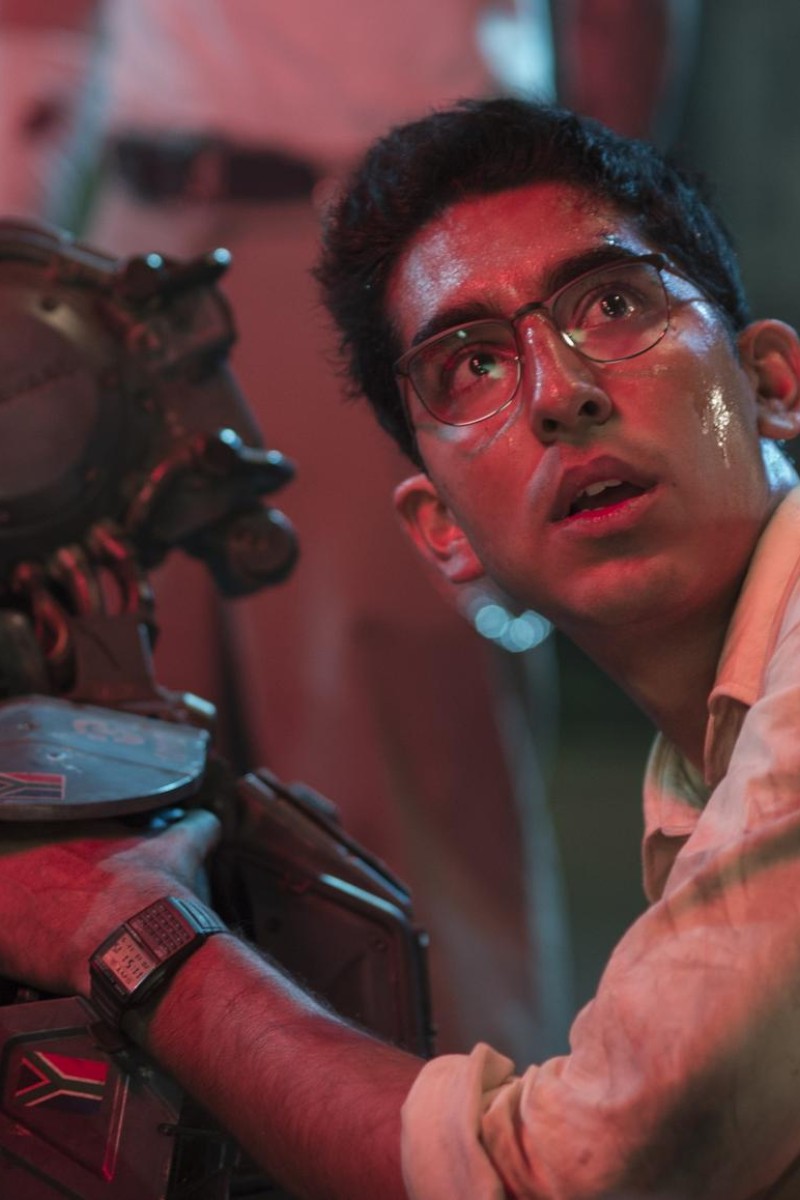
Chappie is near-perfect but for a few rusty nuts and bolts [Review]

Any film about artificial intelligence (AI) will inevitably focus on the concept of consciousness, the soul and what makes us human. But good science fiction goes beyond addressing the philosophical issues and connects with the audience on a more basic level. It can’t all be about intellect; for an AI movie to really work, you can’t forget the heart.
And in this aspect, Chappie is a major success. Director Neill Blomkamp is already no stranger to using the sci-fi genre to address relatable issues, as he did with District 9 (2009) and Elysium (2013). But Chappie is different from the previous two films, in that the main character is not human—it’s a robot. And what’s more, the film makes the audience empathise and really care deeply about the well-being of this robot.
This movie isn’t about Deon (Dev Patel), the engineer who designed the robot or his work rival Vincent (Hugh Jackman). It’s not about the rag-tag trio of would-be gangsters—Yolandi (Yo-Landi Visser), Ninja (Ninja) and Amerika (Jose Pablo Cantillo)—who want to use the robot for their own gain. It’s about Chappie and his development. Chappie is the focus, and his well-being is what the film makes the audience care most about.
Chappie as a character (played by Sharlto Copley who previously starred as Wikus Van De Merwe in District 9) is so endearing and engaging, it makes up for the lackluster and sometimes downright distracting performances of the surrounding cast. Jackman’s Vincent is uneven and underdeveloped as a villain, and Patel’s Deon is bland and forgettable.
But what really brings the film down is the duo of Yolandi and Ninja, who are shoe-horned into the film seemly only to promote their band Die Antwoord. Every scene they appear in has their music blasting in the background, they wear clothing and merchandise with their band’s logo and their own faces plastered across it, and the abandoned warehouse which serves as the setting for most of the film is covered with graffiti and posters promoting Die Antwoord. Every time they appear on-screen seems more like a ham-fisted attempt at advertising their music rather than part of the film, and it’s an annoying distraction from what the audience really wants. Yolandi and Ninja seem hell-bent in to sell both their music and their image as hard-core gangsters—but when someone is trying that hard to sell something, it usually means no one is buying it. Such is the case with their performances, which almost ruin a perfectly good film.
Copley’s charming antics as Chappie, combined with truly incredible graphics and CGI help save the movie, but unfortunately not completely. The end result makes it feel like Chappie is two halves which have been awkwardly combined into one ungainly whole. If the film had stuck to its main intention and focused solely on its titular character, it would have been near perfect. Instead, by making much of the film an advertisement for a South African rap duo—including their inappropriate usurping of the ending—the movie ends up being mediocre with flashes of brilliance.
As uneven as it is, the stellar graphics and range of emotions you'll feel at the hands of robot make Chappie worthwhile. Come for the robots, and just try to ignore the humans.
Contains violence and mature content